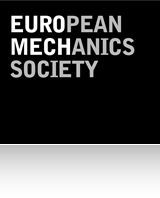
September 19:
17:00 Check-in at Reisensburg Castle
19:00 Dinner
September 20:
09:30 – 10:00 Claudia Redenbach, Modelling of open foams for simulating elasticity and permeability
10:00 – 10:30 Sandra Barman, Spatial models of porous materials with specific connectivity properties (network bottlenecks) and methods to measure these properties
10:30 – 11:00 Coffee break
11:00 – 11:30 Pietro Carrara, Model-Free Data-Driven Fracture Mechanics
11:30 – 12:00 Isaac Squires, Machine learning for the characterisation and design of batteryelectrodes
12:00 – 12:30 Magnus Röding, Machine learning-accelerated analysis and design of porous materials
12:30 – 14:00 Lunch
14:00 – 14:30 Lorenz Holzer, Review of Tortuosity and prediction of effective transport properties in porous media
14:30 – 15:00 Thomas Carraro, Porous Secondary Particles in Lithium-ion Batteries: Comparing the Accuracy of Homogenized and Microscopic 3D Models
15:00 – 15:30 Andreas Wiegmann, GeoDict, the digital material laboratory - a platform for microstructure modelling and virtual material design
15:30 – 16:00 Coffee break
16:00 – 16:30 Anja Bielefeld, Microstructures in Solid-State Batteries – On Composite Electrodes and Voids
16:30 – 17:00 Johannes Gerritzen, Machine Learning based Determination of Material Model Parameters for the Out of Plane Shear Behavior of Fiber Reinforced Plastics
17:00 - 17.30 Davide Cadematori, Microstructural modeling of infiltrated electrodes for solid oxide cells
September 21:
09:00 – 09:30 Alejandro Franco, Simulating electrode microstructure formation with manufacturing process modelling
09:30 – 10:00 Orkun Furat, Quantifying the impact of charge rate, number of cycles and operating temperature on particle cracking in Li-ion battery cathodes
10:00 – 10:30 Timo Danner, On the decisive role of passive material properties and morphology in Li-ion batteries
10:30 – 11:00 Coffee break
11:00 – 11:30 Antoine Gloria, Fluctuations of the response of random materials
11:30 – 12:00 Andreas Alpers, A Support Vector Machine Approach to GBPDs
12:00 – 12:30 Zbynek Pawlas, Statistical analysis of internal stress distribution in polycrystals under external loads
12:30 – 14:00 Lunch
14:00 – 14:30 Seoyun Sohn, Scaling between elasticity and topological genus for random network nanomaterials
14:30 – 15:00 Selma Leonardi, 3D-printing metallic cellular materials with random pore features: process-induced geometrical defects and resulting mechanical
15:00 – 15:30 Matthias Neumann, Data-driven stochastic 3D nanostructure modeling for virtual testing of battery materials
15:30 – 16:00 Coffee break
16:00 – 16:30 Benedikt Prifling, Microstructure-property relationships based on stochastic 3D microstructure modeling with a focus on lithium-ion batteries
16:30 – 17:00 Johannes Hörmann, Linking battery performance to microstructural properties of active material particles
September 22:
09:00 – 09:30 Luis Bonilla, Collective motion of epithelial cells in tissues
09:30 – 10:00 Katja Schladitz, Crack segmentation in 3D images of concrete
10:00 – 10:30 Alexandra Pamperin, Computation of effective transport properties of granular cathode material in particle and pore space using the resistor network method
10:30 – 11:00 Coffee break
11:00 – 11:30 Alok Mehta, A microstructure-generation method for short fiber composites with fiber length and orientation distribution coupling and its effect on mechanical properties
11:30 – 12:00 Vinit Nagda, Image-based 3D reconstruction and modelling of heterogeneous battery electrode microstructures
12:00 – 12:30 François Willot, Classification of point patterns based on Choquet capacity theory
14:00 End
